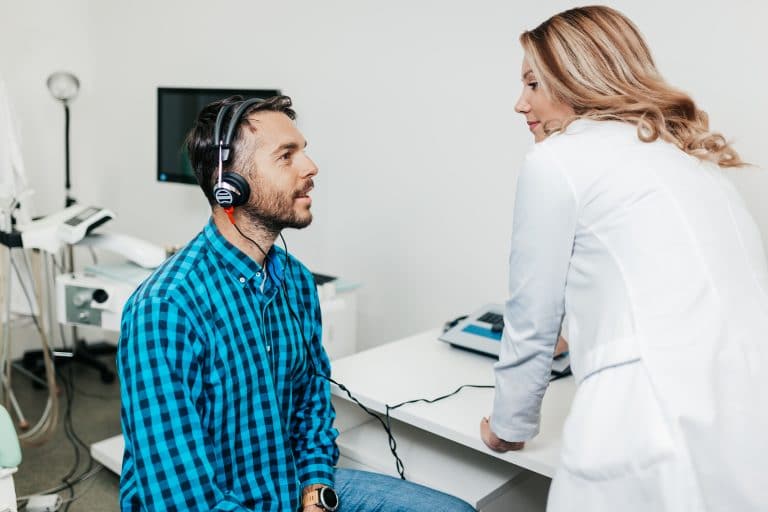Who among us has not listened to their favorite artist or podcast through headphones as a form of self-care? While listening loudly makes the rest of the world fade away, you are likely putting your hearing at risk. Continue reading to learn how high levels of noise can affect your hearing health.
Noise-Induced Hearing Loss
According to the World Health Organization, nearly 50% of all people between the ages of 12 and 35 are at risk of hearing loss due to prolonged and excessive exposure to loud sounds, including music they listen to through personal audio devices. A new analysis by the Acoustical Society of America also found that children, teenagers and young adults are listening to many hours of music daily at volumes that exceeded the public health limit.
Sounds are measured in decibels (dB). Anything louder than 85 dB can cause damage to the delicate hair cells within the inner ear. These hair cells are responsible for converting soundwaves into electrical impulses, which are then sent through the auditory nerve to the brain to be interpreted as sound.
Hearing loss caused by exposure to dangerously loud sounds is known as noise-induced hearing loss.
In addition to not being able to hear, hearing loss puts people at risk of cognitive decline. According to a 2011 study, people with mild hearing loss were twice as likely to develop dementia than those with normal hearing; those with moderate hearing loss were three times as likely and participants with severe hearing loss had five times the risk.
How to Listen and Keep Your Ears Safe
You do not have to pick between using headphones to listen to your favorite artist or enjoying a show at the Crystal Ballroom and your hearing health. The best way to keep your ears safe is to set listening limits. These include:
- Keeping what you are listening to below the dangerously loud threshold of 85 dB
- Giving your ears listening breaks
- Using a sound level app to determine how loud your environment is
- Wearing hearing protection when you cannot avoid exposure to unsafe sounds
- Knowing the warning signs of hearing loss
To learn more about protecting your hearing or to schedule an appointment with a hearing professional, contact the experts at Mt. Hood ENT today.
